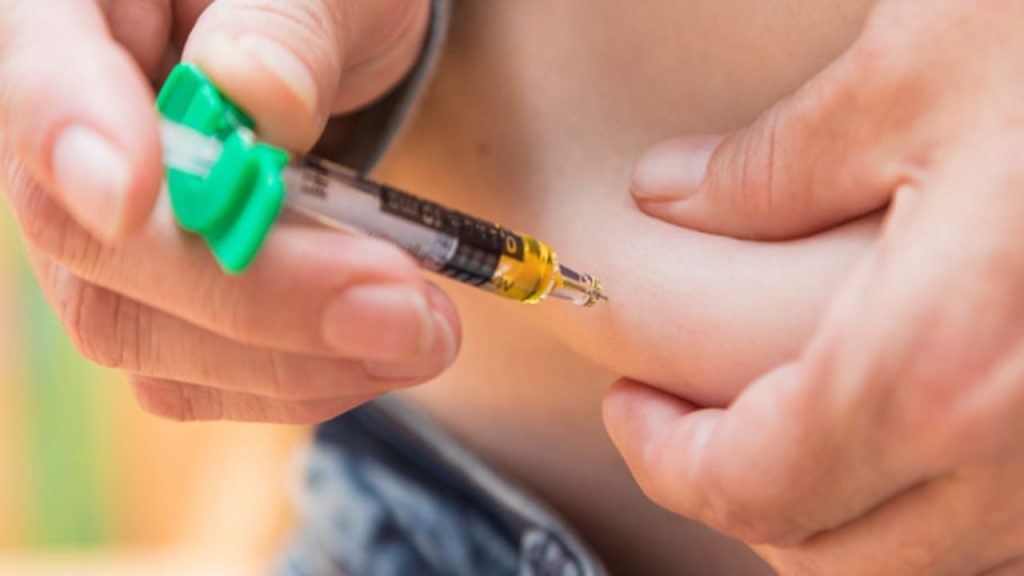Stelara is a medication used to treat autoimmune diseases such as psoriasis, Crohn’s disease, and rheumatoid arthritis. It’s a biological drug that needs to be stored at a specific temperature to maintain its effectiveness. But what happens if Stelara is not refrigerated?
Stelara is a popular medication for managing autoimmune diseases, with millions of people using it worldwide. Proper storage is crucial for maintaining the drug’s effectiveness and ensuring patients receive the full benefits of treatment.
However, there are instances when the medication may not be refrigerated, such as during transportation or power outages.
The effectiveness of Stelara is directly related to how well it is stored. If it’s not refrigerated, the drug’s potency may decrease, leading to reduced effectiveness and potential treatment failure.
In this article, we’ll explore what happens if Stelara is not refrigerated and what patients should do if they suspect their medication has been compromised.
What is Stelara?
Stelara is a prescription medication used to treat certain autoimmune disorders, such as psoriasis and psoriatic arthritis. It works by targeting specific proteins in the body’s immune system that contribute to inflammation.
Stelara is administered by injection and is typically given every few weeks or months, depending on the patient’s condition and response to treatment.
It is important to discuss the potential benefits and risks of Stelara with a healthcare provider before starting treatment.
Uses of Stelara
1. Treatment of psoriasis
Stelara is an FDA-approved medication for the treatment of moderate to severe plaque psoriasis in adults.
It works by targeting specific proteins in the immune system that are responsible for the inflammation and skin cell growth associated with psoriasis.
2. Treatment of psoriatic arthritis
Stelara is also approved for the treatment of psoriatic arthritis in adults. Psoriatic arthritis is a type of inflammatory arthritis that affects people with psoriasis.
Stelara can help reduce joint pain, swelling, and stiffness associated with this condition.
3. Treatment of Crohn’s disease
Stelara is used to treat moderate to severe Crohn’s disease in adults who have not responded well to other treatments.
Crohn’s disease is a type of inflammatory bowel disease that causes inflammation in the digestive tract. Stelara can help reduce inflammation and improve symptoms.
4. Treatment of ulcerative colitis
Stelara is currently being studied for the treatment of ulcerative colitis, another type of inflammatory bowel disease.
It works by targeting specific proteins in the immune system that are responsible for the inflammation associated with this condition.
5. Maintenance therapy
Stelara can also be used as a maintenance therapy for psoriasis, psoriatic arthritis, Crohn’s disease, and ulcerative colitis. This means that it is used to help prevent symptoms from returning after initial treatment.
6. Alternative to biologics
Stelara is an alternative to other biologic medications used to treat psoriasis, psoriatic arthritis, Crohn’s disease, and ulcerative colitis.
Biologics are medications made from living cells and are used to target specific proteins in the immune system.
Stelara works differently than other biologics, making it a good option for people who have not responded well to other treatments.
7. Long-lasting effects
Stelara is known for its long-lasting effects. After an initial treatment, many people can go for several months without needing another dose. This can make it a convenient option for people who prefer less frequent dosing.
The importance of refrigeration for Stelara
Stelara is a medication used to treat autoimmune diseases such as psoriasis and Crohn’s disease. It is a biological drug, which means it is made from living cells and must be kept refrigerated to maintain its effectiveness.
If Stelara is not stored at the correct temperature, it can lose its potency and may not work as effectively in treating the autoimmune disease it is prescribed for.
The recommended temperature for storing Stelara is between 36-46 degrees Fahrenheit (2-8 degrees Celsius). It is important to keep the medication within this temperature range at all times, including during transport and storage at home.
Stelara should be kept in its original packaging until it is ready to be used. The medication should not be frozen, and if it accidentally freezes, it should be discarded and not used.
Patients should always check the expiration date on their Stelara medication before using it, as expired medication may not be effective and can even be harmful.
It is important for patients to communicate with their healthcare provider if they have any concerns about the storage or effectiveness of their Stelara medication.
Proper refrigeration of Stelara is crucial for maintaining its potency and ensuring that patients receive the full benefits of the medication in treating their autoimmune disease.
What happens if Stelara is not refrigerated?

1. Decreased Effectiveness
Stelara is a biological medication that requires refrigeration to maintain its stability and effectiveness. If it is not refrigerated, the active ingredients in the medication can break down and become less effective.
This can lead to a reduced response to treatment and potentially worsen the symptoms of the condition being treated.
2. Risk of Contamination
Stelara is a sterile medication, meaning it is free of any bacteria or other contaminants. If it is not refrigerated, however, there is a risk of contamination from bacteria or other microorganisms that can grow at room temperature.
This can lead to infections or other adverse reactions in patients who receive the medication.
3. Wasted Medication
If Stelara is not refrigerated and becomes ineffective or contaminated, it may need to be discarded. This can result in wasted medication and additional costs for the patient or healthcare provider.
4. Potential Health Risks
If a patient receives Stelara that has not been properly refrigerated and is contaminated or ineffective, there is a risk of serious health complications.
These can include infections, allergic reactions, or other adverse events that may require hospitalization or other medical treatment.
5. Legal and Regulatory Issues
Storing and handling medications like Stelara is subject to strict regulations and guidelines from regulatory bodies such as the FDA.
Failure to comply with these regulations can result in legal and regulatory issues for healthcare providers and other stakeholders.
6. Patient Safety Concerns
Ultimately, the most significant consequence of not refrigerating Stelara is the potential impact on patient safety. Patients rely on medications like Stelara to manage chronic conditions and improve their quality of life.
Failure to store and handle these medications properly can put patients at risk and undermine their trust in the healthcare system.
How to properly store and transport Stelara?
1. Keep Stelara in its original packaging
It is recommended to keep Stelara in its original packaging until it is ready to be used.
This will help to protect it from light and moisture, which can reduce its effectiveness.
2. Store at the recommended temperature
Stelara should be stored at a temperature between 36°F to 46°F (2°C to 8°C). It should not be frozen or exposed to extreme heat.
3. Protect from light
Stelara should be kept away from light, as exposure to light can cause it to lose potency. It is recommended to store it in a dark place, such as a closet or drawer.
4. Transport with care
When transporting Stelara, it should be kept in a cool, dark place, such as a cooler with ice packs. It should not be left in a hot car or exposed to direct sunlight.
5. Check the expiration date
Before storing or transporting Stelara, always check the expiration date. Expired medication should not be used, as it may not be effective and could be harmful.
6. Keep out of reach of children and pets
Stelara should be stored in a secure location to prevent accidental ingestion by children or pets.
7. Dispose of properly
If any Stelara is unused or expired, it should be disposed of properly. It should not be flushed down the toilet or thrown in the trash.
Check with your local pharmacy or healthcare provider for proper disposal instructions.
Is Stelara a steroid?
Stelara is not a steroid. It is a medication used to treat autoimmune disorders such as psoriasis, psoriatic arthritis, and Crohn’s disease.
Stelara works by targeting specific proteins in the body that contribute to inflammation and immune system dysfunction.
It is a biological drug that is administered via injection and is often used as a second-line treatment when other medications have not been effective.
While Stelara may have some side effects, it is not classified as a steroid and does not have the same risks associated with long-term steroid use.
Conclusion
In conclusion, it is crucial to keep Stelara refrigerated as it is a biological medication that contains living cells. If it is not stored at the recommended temperature, the effectiveness of the drug may be compromised, and it may not work as intended.
Additionally, using Stelara that has not been refrigerated may lead to adverse side effects.
Therefore, if you are prescribed Stelara, it is important to follow the storage instructions carefully and speak with your healthcare provider if you have any concerns or questions. Thank you for reading this article!


